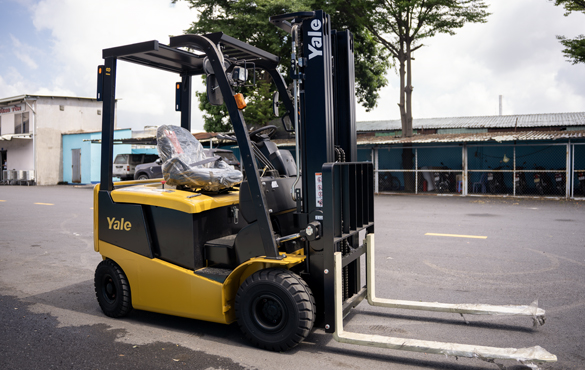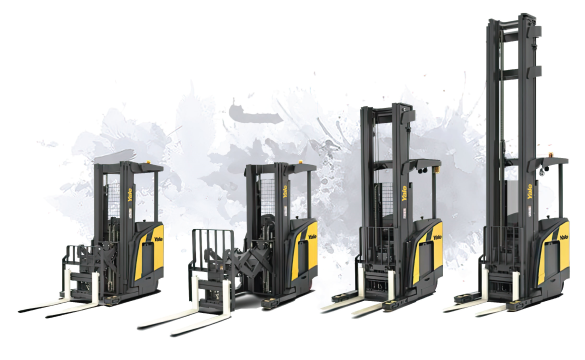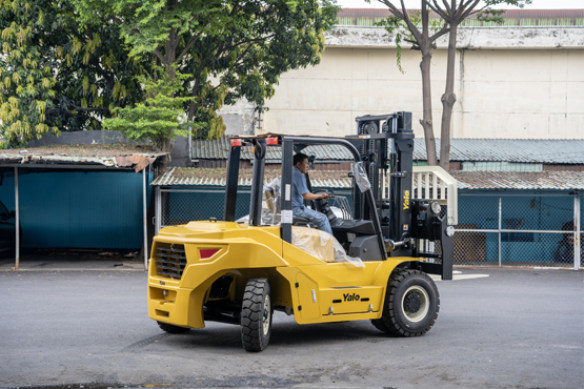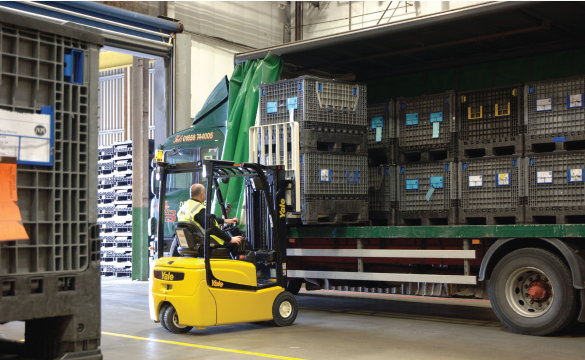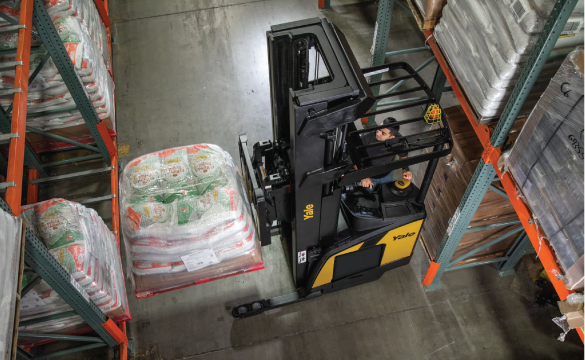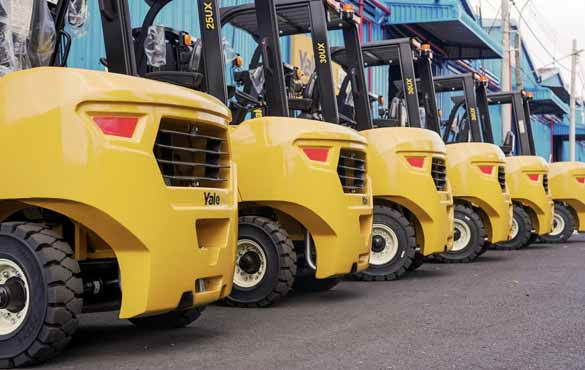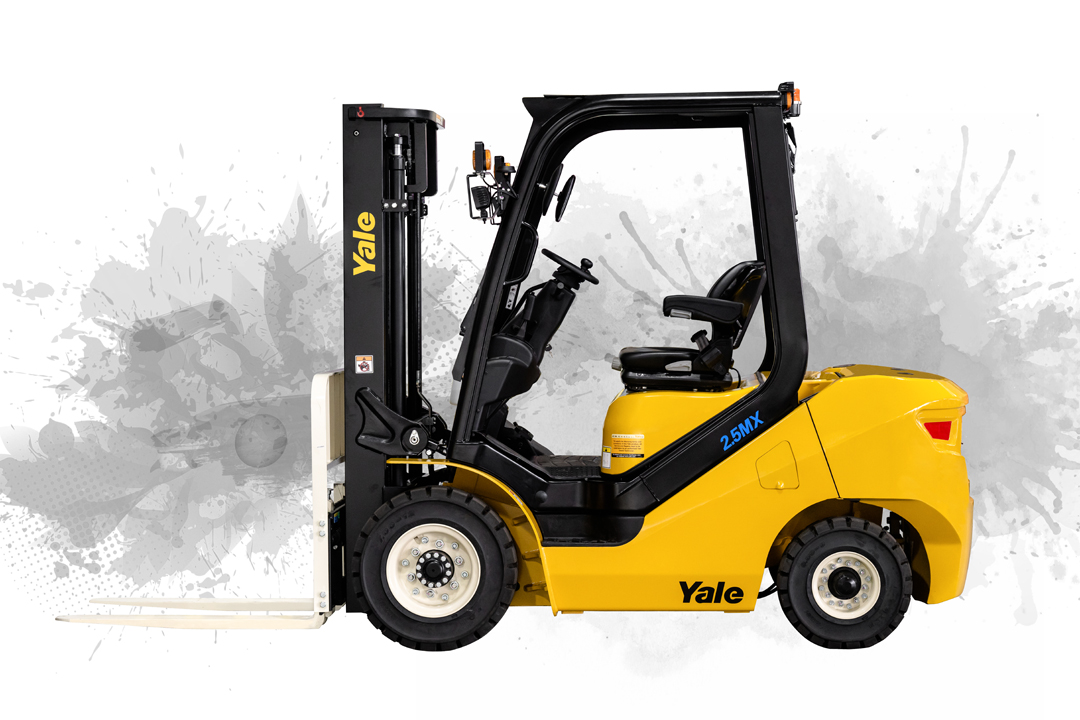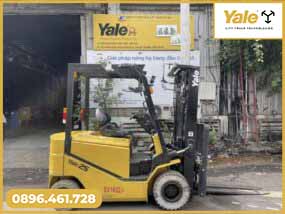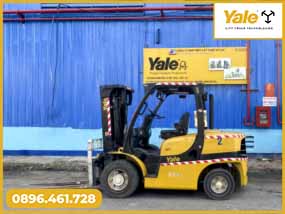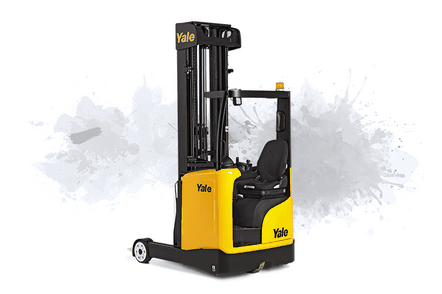Forklifts are the indispensable equipment in factories, warehouses, ports… with the main function of supporting loading and unloading, moving goods. Unlike other types of transportation, forklifts have a relatively limited range of use, but there are still many differences to keep in mind during use.

Yale electric forklifts are very popular in recent times
1. Does operating a forklift require a “certificate”?
Forklifts are usually only used within certain areas, but because of the different structural characteristics and operating principles, people who want to use forklifts still need to have a “Forklift Operator Certificate”. This is also the only valid certificate recognized when applying for a forklift operator job. Forklift driving certificates are usually indefinite so that customers only need to learn one time.
The time to learn a forklift driver’s certificate lasts about 10 sessions, drivers are awarded a certificate after one day of completing the test. The cost of studying will depend on the student’s experience, registering in a group of businesses will have a better cost than studying individually.
The tuition fee is not too high, the process of studying and taking the exam is not too complicated, the time to grant the degree is also very quick, so it is recommended that customers should register to study at a reputable place, avoiding buying a fake degree.
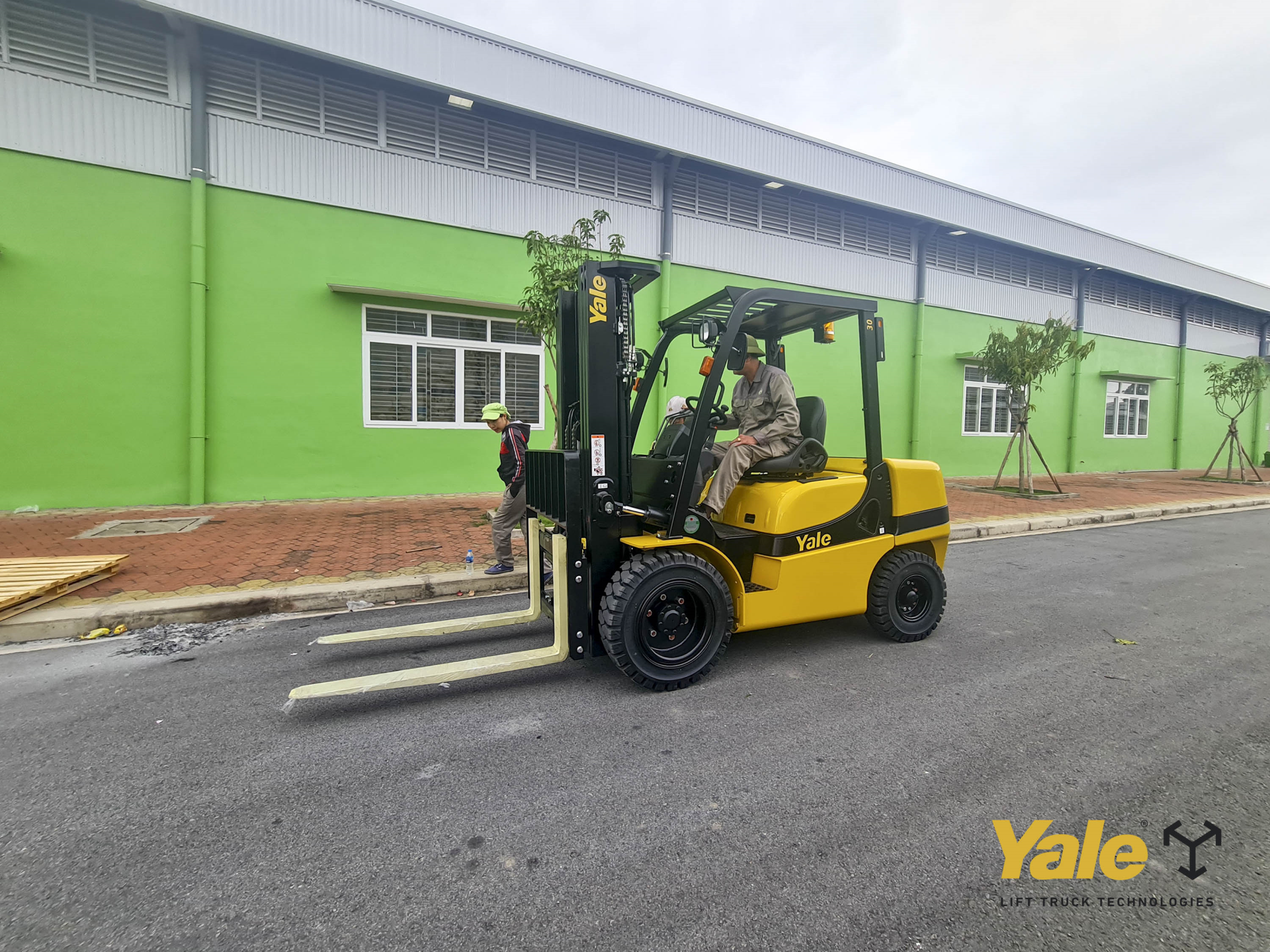
Forklift operator certification is essential in job applications
2. Are forklifts allowed to be driven on public roads?
Forklift trucks can still circulate on public roads if they are registered, have license plates issued by the state and must meet all the prescribed conditions on: braking system, navigation, lights, visibility, position, installation accessories, emissions, noise, etc…
At this time, the forklift is also identified as a specialized motorcycle, so the driver needs to ensure the following documents: vehicle registration certificate, forklift operating certificate, quality inspection certificate of level technical safety as well as environmental protection of the truck.
3. Is it necessary to inspect the forklift before using it every day?
During use, forklifts can generate a lot of potential failures, sometimes even leading to serious accidents. Therefore, checking the forklift every day, especially before operation, not only helps to ensure efficient operation of the truck, detects damage in time, but also limits occupational safety risks. Important parts to check include: signal lights, wheels, brakes, lifting parts, chassis, machinery, levers, steering wheel, mirrors.
4. How to maintain the forklift?
Machines containing moving parts are susceptible to wear and tear during use, and are also affected by external factors. For that reason, forklifts also need to be cleaned periodically and carefully cared for. There are many forklift parts that require maintenance, some of which can be handled at home, while others require professional help.
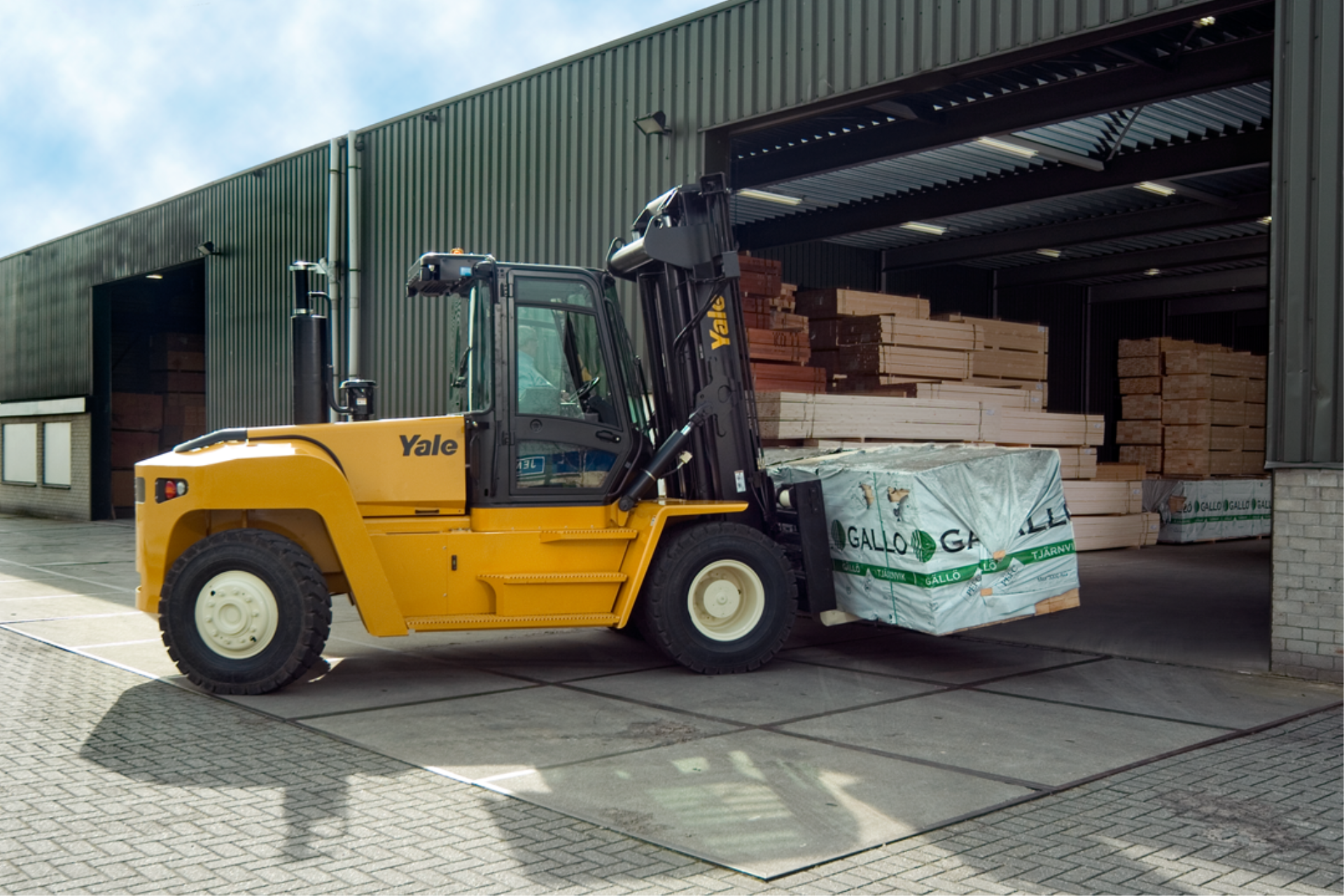
Maintenance requirements for electric forklifts are more simple than diesel forklifts
Forklift users need to note specific timelines for forklift maintenance, such as: after 70 hours of operation, the air filter needs to be cleaned, after 300 hours, the engine oil needs to be changed, after 1000 hours the oil filter needs to be changed, after 2000 hours of checking the hydraulic oil, the brake fluid needs to be checked regularly, the engine oil used is 40 index oil and needs to be filtered after 2 oil changes. In addition, depending on the frequency and operating conditions, check many other factors.
5. Things not to do when operating a forklift:
To ensure longevity and ensure safety when using forklift trucks, there are some points that drivers should avoid as follows:
– Do not change the existing structure of the forklift.
– Do not use forklifts to lift people.
– Do not raise and lower goods while driving forklifts.
– Do not operate the forklift on soft, rough ground.
– Do not lift goods beyond the allowable capacity of the forklift.
– Do not stick your hands, feet or people out when the forklift is in operation.
– Do not answer the phone, doing private work… while operating the forklift.
– Do not lift goods when detecting damaged pallets or containers.
Above are answers to questions about the problems of using and operating forklifts that customers usually care about. Although they are only basic information, they are very useful for beginners.
Customers who are interested and want to learn more about forklifts in particular and material handling equipment in general, please contact Yale Forklifts Vietnam via Hotline: 0896.461.728 for the most dedicated support and advice!
Yale Forklifts Vietnam
Head office: 39 Nguyen Binh Khiem, ward 1, Go Vap district, HCMC
Showroom and Service center 1: Lot O1, no.9, Song Than industrial park, Di An, Binh Duong.
Ha Noi Branch: CO Office, 8th Floor, Tower C, Ho Guom Plaza Building, 102 Tran Phu, Mo Lao Ward, Ha Dong District, Hanoi
Showroom & Service center 2: TC06, Lot DX2, General Department Area 5, Tan Trieu Ward, Thanh Tri District, Ha Noi
Hotline: 0896.461.728
Email: info@yale.com.vn

